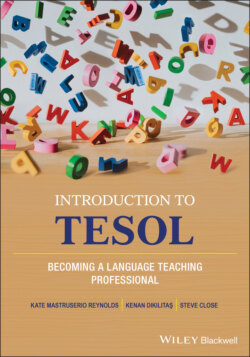Читать книгу Introduction to TESOL - Kate Reynolds - Страница 74
Advocacy about professional recognition
ОглавлениеDue to the prevalent myths and misconceptions about second language teaching and learning, TESOL educators frequently report a lack of professional recognition and respect among their educational peers (TESOL International Association, June 2008). This is visible on university campuses when IEPs are not located in academic departments, and ELLs do not receive language credit for speaking in two languages or studying English at university, for example. It can be observed when K–12 classrooms are assigned that are not on par with the general education classes; TESOL educators sometimes need to hold ESL/EFL/ELT classes in the library, or even worse in hallways and stairwells. In EFL settings, individuals are hired to teach English based solely on being a native speaker, for instance. Situations like this are inequitable and TESOL professionals and professional organizations strive to advocate for parity for ELLs and the field.
Local, regional, and national communities’ beliefs influence leaders to make laws related to program design, instruction, placement, and assessment of ELLs. At times, lawmakers and leaders are informed by professionals and professional organizations who cite research and practice. Situations do occur that prohibit a program model, such as bilingual instruction, or change the language of instruction for a university. Engagement in professional organizations helps us advocate for equitable and evidence-based educational programs, instruction, placement, and assessment for ELLs.
TESOL International Association’s teacher education standards include the expectation that TESOL professionals engage in advocacy. Standard 5 states, “Candidates demonstrate professionalism and leadership by collaborating with other educators, knowing policies and legislation and the rights of ELLs, advocating for ELLs and their families, engaging in self-assessment and reflection, pursuing continuous professional development and honing their teaching practice through supervised teaching” (TESOL International Association, 2019, p. 11). To that end, the organization offers an annual Advocacy Summit in the Washington, DC area, in which participants learn about laws relevant to ELLs in the United States as well as strategies for advocating to lawmakers and advocacy resources (see https://www.tesol.org/advance-the-field/advocacy-resources).
